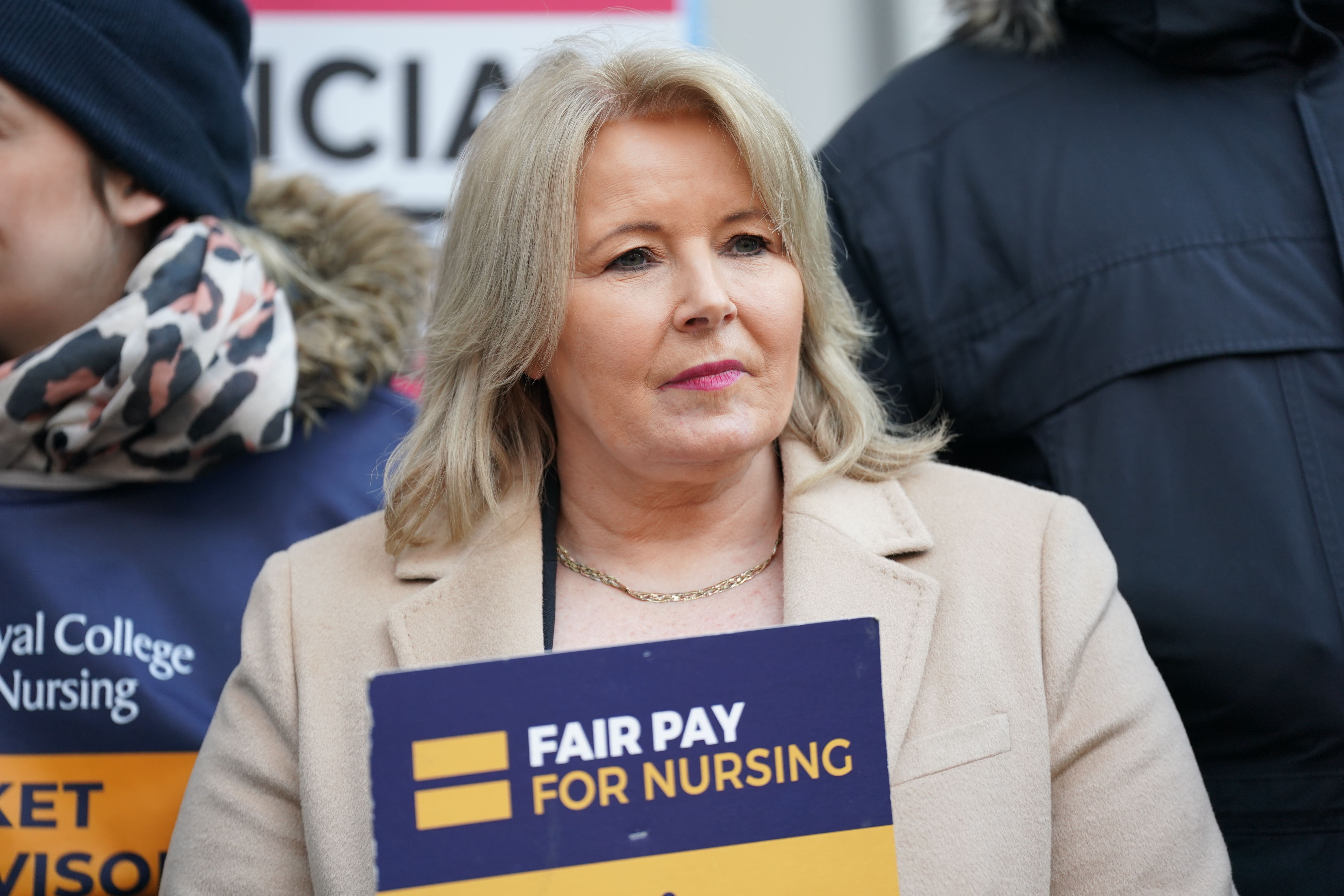Unions demand ‘proper pay talks’ for health workers to avoid further disruption
Royal College of Nursing general secretary Pat Cullen said the government’s letter to the pay review body was ‘extremely late’.

Your support helps us to tell the story
From reproductive rights to climate change to Big Tech, The Independent is on the ground when the story is developing. Whether it's investigating the financials of Elon Musk's pro-Trump PAC or producing our latest documentary, 'The A Word', which shines a light on the American women fighting for reproductive rights, we know how important it is to parse out the facts from the messaging.
At such a critical moment in US history, we need reporters on the ground. Your donation allows us to keep sending journalists to speak to both sides of the story.
The Independent is trusted by Americans across the entire political spectrum. And unlike many other quality news outlets, we choose not to lock Americans out of our reporting and analysis with paywalls. We believe quality journalism should be available to everyone, paid for by those who can afford it.
Your support makes all the difference.Unions have called for “proper pay talks” over health workers’ pay or risk a repeat of the disruption which hit the NHS this year.
The move followed the government writing to the pay review body on Wednesday which effectively starts the NHS pay-setting process for next year.
Royal College of Nursing general secretary Pat Cullen said the government’s letter to the pay review body was “extremely late” and confirms the next pay award will be “late too”.
Nursing staff received the lowest pay award in the public sector for 2023/24 - we end the year in formal dispute with ministers and campaigning for a pay rise that addresses the staffing crisis in the NHS
She said: “There is no evidence that the government has honoured its commitment to improve how the process works despite a consultation earlier this year.
“Nursing staff received the lowest pay award in the public sector for 2023/24 – we end the year in formal dispute with ministers and campaigning for a pay rise that addresses the staffing crisis in the NHS.
Unison’s acting head of health Helga Pile said: “The government is in danger of ignoring the lessons from last winter’s NHS dispute.
“In the summer of last year, health unions had called for pay talks as the only way to avoid industrial action. Ministers refused, so strikes took place across the NHS.
“By issuing the pay review body remit letters so late in the day, the government has once again failed to plan ahead. NHS staff now won’t get the wage increase they’re due in April on time.
Falling back on the same discredited system won't give staff confidence that ministers are taking any of the huge problems affecting the NHS seriously
“But improving wages across the health service is key to solving the staffing crisis affecting every part of the NHS.
“The deal to resolve the recent dispute included a government commitment to review the failing process for setting pay.
“Falling back on the same discredited system won’t give staff confidence that ministers are taking any of the huge problems affecting the NHS seriously.
“There simply isn’t time to allow the long-winded pay review body process to run its course, especially when everyone knows ministers are calling the shots.
“Victoria Atkins (Health Secretary) must do the right thing for NHS staff and patients by holding proper pay talks early in the new year.
“Otherwise, there’s a risk of a repeat of the disruption that affected so much of the NHS last winter.
Rachel Harrison, GMB national officer said: “GMB has repeatedly said we won’t engage with the NHS Pay Review Body process until it’s significantly reformed.
“Today’s tardy letter from the Department of Health shows exactly why.
“It’s farcical to pretend the PRB is properly independent, when its hands are tied so tightly by the Department before they’ve even considered any evidence.
“Now, with ministers attacking the right of ambulance workers and NHS staff to strike and fight for better pay, a truly independent PRB has never been more important.”
The Health Secretary wrote: “I am asking you to provide recommendations in line with your terms of reference and would welcome your report in May 2024.
“It is vital that the pay review bodies consider the historic nature of the 2023 to 2024 awards and the government’s affordability position that will be set out further in written evidence.”